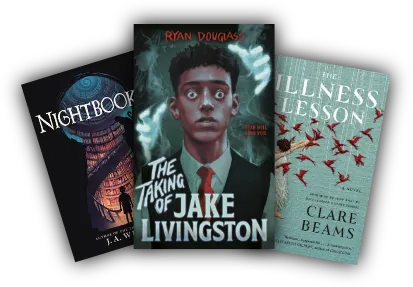How to Start Writing a Book for Beginners

Writing a book is a dream many people harbor, but very few see through to the end. Whether you’re aiming to write a novel, memoir, self-help book, or business guide, the process can feel overwhelming for beginners. The good news? You don’t have to be a literary genius or seasoned author to write a compelling book. All it takes is a solid plan, consistent effort, and the right guidance.
In this guide, we’ll walk you through every essential step of starting your book—from generating your initial idea to putting words on paper and understanding how ghostwriters and ghostwriting services can support your journey.
Table of Contents
ToggleStep 1: Discover Your Why
Before you write your first word, ask yourself, Why do you want to write a book? Understanding your motivation will guide your writing process and keep you inspired. Your reasons might include:
- Sharing personal experiences or expertise
- Building your authority in a professional field
- Leaving a legacy for future generations
- Earning income through publishing
- Fulfilling a creative passion or dream
Knowing your “why” helps shape the tone, structure, and purpose of your book. If your goal is to build a brand or market a product, your book might follow a more strategic, business-driven format. If you’re writing for personal reasons, it might take a more emotional or reflective tone.
Step 2: Decide What Kind of Book You Want to Write
Clarity about your book’s genre and audience is crucial. Ask yourself:
- Is it fiction or non-fiction?
- Who is the target audience?
- What message or theme do you want to convey?
Here are some common types of books beginners often choose:
- Memoirs and autobiographies
- Self-help and personal development
- Business or leadership guides
- Romance, fantasy, or mystery novels
- Children’s books or young adult fiction
If you’re unsure where to begin, consider hiring professional ghostwriters. Ghostwriting services are ideal for individuals who have powerful stories or valuable knowledge but lack the time or writing skills to bring their ideas to life. A ghostwriter will collaborate with you to produce a book that reflects your voice and vision.
Step 3: Outline Your Book
Once you’ve decided what to write, the next step is to create an outline. Think of your outline as the skeleton of your book. A solid outline helps prevent writer’s block, ensures a logical flow, and gives you a clear roadmap to follow.
Here’s a basic outlining structure for non-fiction:
Introduction
- Why you wrote the book
- What the reader will learn
Chapters
- Each chapter should cover one major idea
- Include subtopics or bullet points for each
Conclusion
- Summarize key takeaways
- Offer final thoughts or calls to action
For fiction, your outline might include:
Exposition
- Setting, characters, and background
Rising Action
- Major plot developments
Climax
- The most intense part of the story
Falling Action
- Events after the climax
Resolution
- How the story ends
If this step feels too technical or intimidating, you can work with ghostwriting professionals who specialize in story development and structural planning. Ghostwriters often begin their work by helping clients map out outlines based on recorded interviews or concept notes.
Step 4: Set a Writing Schedule
One of the biggest obstacles for first-time authors is staying consistent. You don’t need to write 2,000 words a day, but you do need a realistic schedule. Consider:
- Daily writing goals (e.g., 500 words a day)
- Dedicated writing time (e.g., mornings or evenings)
- Writing location (quiet, distraction-free space)
Use writing tools like Google Docs, Scrivener, or even a simple journal — whatever helps you stay focused. The important part is showing up consistently.
If you’re juggling a full-time job or parenting duties, ghostwriting can become a lifesaver. Many people turn to ghostwriters when they simply don’t have time to write but still want to publish a book under their name.
Step 5: Write the First Draft Without Judging Yourself
Your first draft is not supposed to be perfect. It’s meant to be messy, raw, and filled with mistakes. Don’t edit while you write. Let your thoughts flow freely.
Remember these tips:
- Write now, edit later.
- Don’t worry about grammar or sentence structure.
- Focus on getting the story or content down.
If you’re struggling to express your ideas clearly, consider consulting a ghostwriting agency. Experienced ghostwriters can take your rough draft, notes, or even voice memos and turn them into polished content. Ghostwriting is not cheating — it’s a professional service that helps authors bring their ideas to life.
Step 6: Revise and Edit
Once your first draft is complete, it’s time to revise. Editing is where your book starts to take shape. Begin by reading through your manuscript and looking for:
- Plot holes or logical inconsistencies
- Redundant or unclear sections
- Weak transitions or pacing issues
- Grammar and spelling errors
You can self-edit using tools like Grammarly or ProWritingAid, but it’s always best to involve a professional editor. Many ghostwriting companies offer editing and proofreading services as part of their packages, ensuring your book meets publishing standards.
Step 7: Get Feedback
Before publishing your book, get feedback from beta readers, writing groups, or professional editors. Fresh eyes will spot mistakes or issues you may have missed. Feedback helps you understand how your audience perceives your content and where improvements are needed.
You can also request feedback directly from your ghostwriter if you’re using ghostwriting services. They often have experience in publishing and can provide valuable insight into what readers expect in your genre.
Step 8: Decide How to Publish
Today, writers have more publishing options than ever before. Your decision depends on your goals, timeline, and budget.
Traditional Publishing
- Submit your manuscript to a literary agent or publisher
- Requires a book proposal and query letter
- Offers distribution, editorial support, and credibility
- Can be time-consuming and competitive
Self-Publishing
- You retain full control over the book
- Platforms like Amazon Kindle Direct Publishing (KDP) make it easy
- You manage editing, design, and marketing
Hybrid Publishing
- A mix of both worlds
- You pay for publishing services but keep creative control
Many ghostwriting agencies offer publishing assistance, from formatting your book for Amazon Kindle to creating book covers and marketing plans. Hiring ghostwriters can help you skip the guesswork and fast-track your publishing goals.
Step 9: Promote Your Book
Writing your book is just the beginning. To reach readers, you need a solid promotion strategy. Here’s how:
- Create a website or landing page for your book
- Share behind-the-scenes content on social media
- Collect email subscribers and send regular updates
- Reach out to podcasts and influencers for interviews
- Offer free chapters or pre-order discounts
If you’re not confident in marketing, you can hire ghostwriters to write promotional materials like email sequences, sales pages, or press releases. Ghostwriting isn’t limited to books — it also includes marketing support to help you succeed as an author.
Final Thoughts
Starting a book as a beginner can be intimidating, but with the right mindset and support, it becomes a rewarding, creative journey. Whether you choose to write every word yourself or collaborate with professional ghostwriters, your voice and vision remain central to the story. Ghostwriting services are simply tools, powerful ones that can help you turn your dream into a finished, published book.
Don’t let fear, doubt, or lack of time stop you. Begin today. Plan, write, edit, and share your message with the world. Every great author once started where you are now — at the beginning, unsure, but full of potential.

